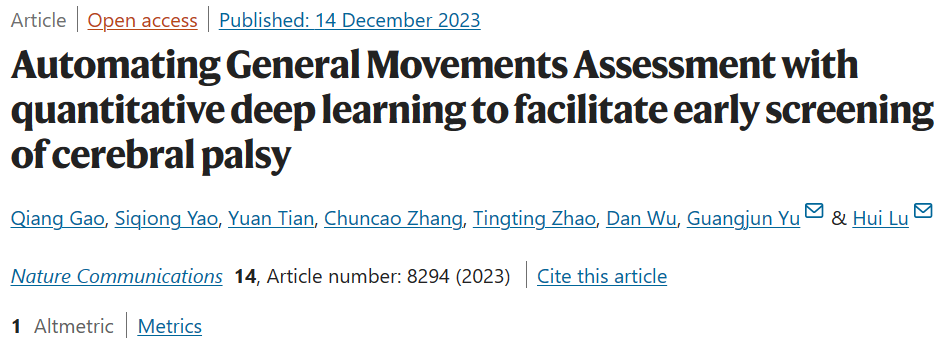

Editor | Cabbage Leaf
Prechtl Global Movement Assessment (GMA) is increasingly recognized for its role in assessing the developmental integrity of the nervous system and predicting motor dysfunction. , especially in diseases such as cerebral palsy (CP). However, the need for trained professionals has hindered the adoption of GMA as an early screening tool in some countries.
In the latest study, researchers from Shanghai Jiao Tong University proposed a deep learning-based movement assessment model (MAM), which combines infant videos and basic features, and is designed to detect fussy movements (FM). ) stage to realize GMA automation.
MAM demonstrated strong performance, achieving an area under the curve (AUC) of 0.967 during external validation. Importantly, it strictly follows the principles of GMA and has strong interpretability, as it can accurately identify FM in videos, which is basically consistent with expert evaluation.
Using the predicted FM frequency, the quantitative GMA method was introduced, and its AUC reached 0.956, improving the diagnostic accuracy of GMA novice doctors by 11.0%. The development of MAM has the potential to significantly simplify early CP screening and revolutionize the field of quantitative video-based medical diagnosis.
The study was titled "Automating General Movements Assessment with quantitative deep learning to facilitate early screening of cerebral palsy" and was published in "Nature Communications" on December 14, 2023.

Please click the following link to view the paper details: https://www.nature.com/articles/s41467-023-44141-x
The above is the detailed content of Shanghai Jiao Tong University team uses deep learning for motor assessment to promote early screening of cerebral palsy. For more information, please follow other related articles on the PHP Chinese website!
 How to check server status
How to check server status
 How to solve the computer prompt of insufficient memory
How to solve the computer prompt of insufficient memory
 How to optimize a single page
How to optimize a single page
 What should I do if the web video cannot be opened?
What should I do if the web video cannot be opened?
 How to implement linked list in go
How to implement linked list in go
 How to buy and sell Bitcoin legally
How to buy and sell Bitcoin legally
 Introduction to the main work content of the backend
Introduction to the main work content of the backend
 Use of jQuery hover() method
Use of jQuery hover() method
 Why does the computer have a blue screen?
Why does the computer have a blue screen?




